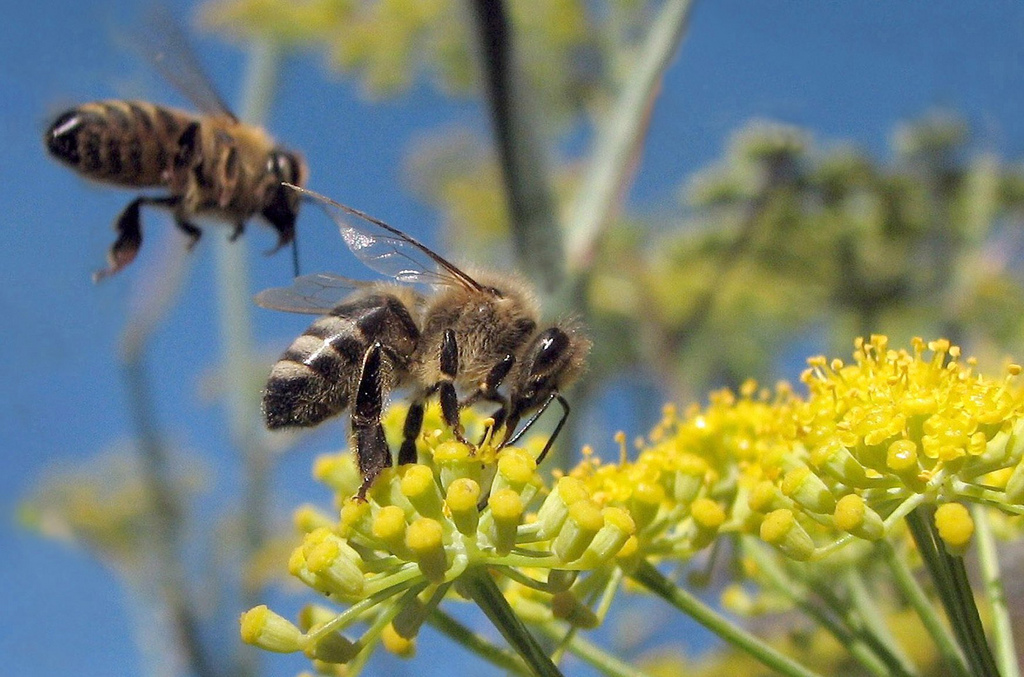
SPC Talks Bees
SPC Programs & Events February 16, 2015By Fred Arnold
Tom Stephens, a local beekeeper and owner of Bee Branch Creek Apiaries, enlightened students at SPC Tarpon on honey bees: their habits, their anatomy, and most importantly, their impact on the ecosystem.
Stephens stood in a lecture hall, surrounded by students, and pressed about the issues involving the decline in the honey bee population. “It’s a big issue. They are our canary in the coal mine,” he said. What he referred to is the use of canaries to smell out toxic chemicals in the coal mines for miners, and, to Stephens, the decline in bee population tells us to pay attention.
Imagine a field where green tufts of grass billow in the wind, where trees root themselves in a pattern masked by improbability; a field where rows upon rows of flowers, fruits, and vegetables lay for the picking, and an insistent buzz can be heard over it all. The honey bee, an insect that finds its home within fields such as this, do an important job–a job that ensures those flowers and fruits the ability to bloom.
Pollination, a term often associated with honey bees, refers to pollen transferred from the male part of the plant to the female part of the plant enabling fertilization and reproduction.
“Without insect pollination, about one third of the crops we eat would have to be pollinated by other means, or they would produce significantly less food,” said Green Peace in one of their Research Reviews on agriculture and pollination. Statistically, insect pollination amounts to three hundred billion U.S dollars in agricultural assets.
Furthermore, Stephens believes that restricted use of pesticides and other chemicals that harm bees may stem the decline in population. In a society where people remain distanced from their food, awareness on the topic stays low, but with movies such as Food, Inc. and the grass roots movements that garner backyard gardens, Stephens remains hopeful.
Though grim, Stephens has made the best of the situation. He now owns five separate plots of land that houses bees which he manages after he teaches a full day of history at Palm Harbor University High School.
“Sometimes, it takes me six hours to do a full circuit of my bee hives,” said Stephens as he recounted a tale about his first aggressive bee hive. “We smoked them, but they still found out they could sting through my socks,” he continued. After putting on a pair of cowboy boots, he managed to get the job done, but his feet swelled up. To this day, he remembers that encounter, and to this day he still remains loyal to the beekeeping trade.
“If you told me twenty years ago that I would be tending to bees, I would have said you were crazy, but it’s my passion,” he said.
Stephens taught the students at St. Petersburg College about more than just bees; he taught them what passion looks like. The Environmental and Sustainability Club offers amazing opportunities, like the honey bee presentation. In the upcoming months, lectures on birds of prey and GMO’s are on the menu. Contact Professor Kelli Stickrath for more details!
Header photo by Jack Wolf (Flickr Creative Commons License).
